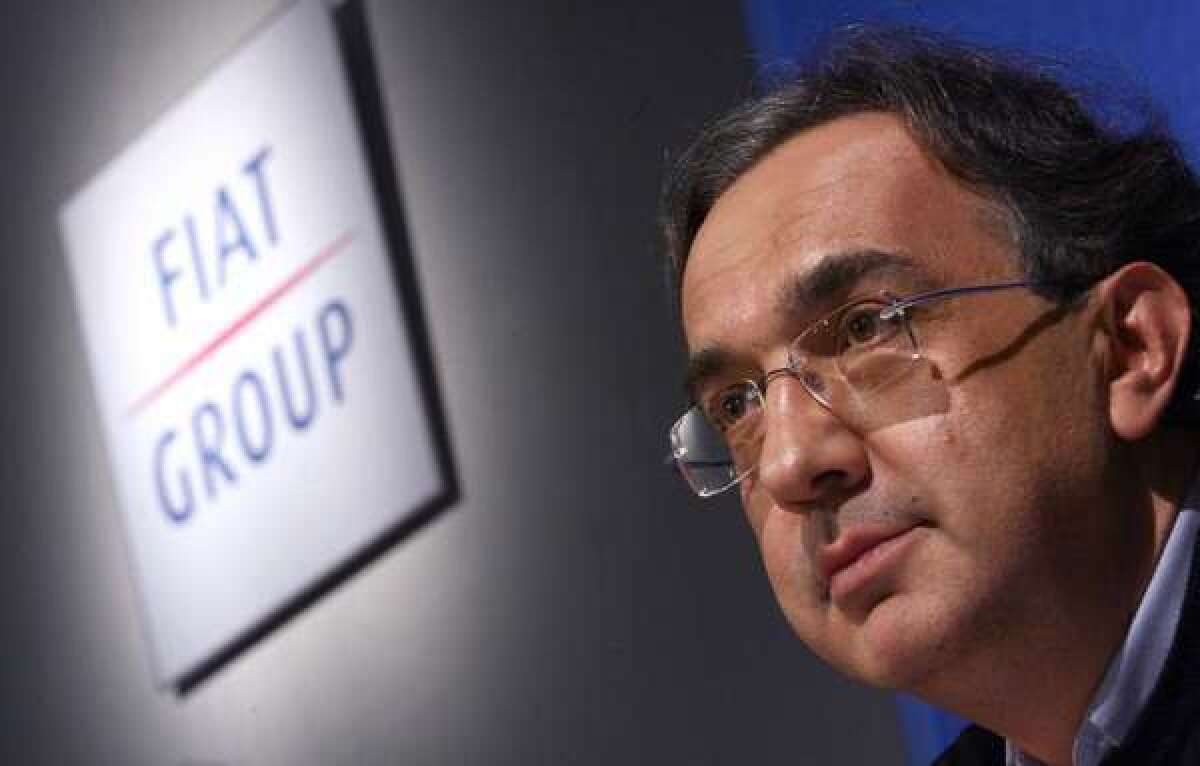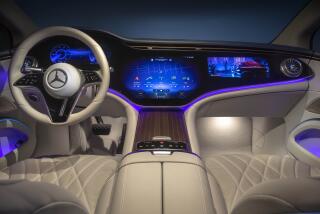Fiat moving to the U.S.? Chief has hinted at why it might make sense

Reports out of Europe suggest that Fiat SpA, the 114-year-old Turin, Italy-based automaker, has a headquarters move to the U.S. under consideration.
If it happens, the move would likely occur after Fiat’s planned merger with Chrysler Group.
It would be a stunning and unprecedented decision in the automotive industry, experts said, because of Fiat’s obviously deep Italian roots.
PHOTOS: Kelley Blue Book’s 10 best green cars for 2013
“To say that Fiat is pretty entrenched in Italy would be an understatement. There is a culture that has been baked in there,” said Mike Wall, director of automotive analysis for IHS Automotive.
“There would be a healthy resistance to this from Fiat workers, Italian shareholders and the Italian government,” Wall said, but he added that there were some sound reasons behind a potential headquarters move.
“You look at where Fiat’s profits are being generated, and it’s here, in North America,” Wall said.
For a closer look at the reasoning behind the potential move, one had to look no further than the comments made by Sergio Marchionne, chief executive and executive director of Fiat SpA, at the company’s quarterly earning teleconference less than three weeks ago.
Marchionne, also the chief executive of Chrysler Group, had been asked “where I see the domicile of the Fiat-Chrysler organization once this combination were to be consummated. And my answer at that time, which I reiterate now, is that the thing that would certainly be the single largest factor in our consideration is the adequacy of the capital markets to support operations going forward. And I will leave it you to decide where that market is.”
Marchionne then talked about the weakness of the EMEA market for the company, which is auto industry shorthand for Europe, the Middle East and Africa, and how Fiat sales are much stronger in other parts of the world.
“Then you realize that Europe is becoming a less and less relevant fact in the scheme of things,” Marchionne said. “That is not to take away from our historical roots. I think it’s a recognition of economic conditions.”
Marchionne said that Fiat had the ability to “shift its interest and to shift its resources to markets that are much more rewarding in terms of investment and return.”
Finally, Marchionne talked about a change in the company’s world view.
“Italy, in 2012, represented less than 10% of the overall sales of this group. And I think that’s a stark reality for somebody who has been a Fiat aficionado all of his life,” Marchionne said.
“This is a different -- it’s a different house, it looks at the world in a completely different way,” Marchionne added.
Fiat is currently Europe’s fourth-biggest automaker. It’s share of the European auto market fell to 6.4% in 2012, down from 7.3% a year earlier.
Chrysler Group LLC said it sold 156,698 cars and trucks last month. Sales of the Jeep Grand Cherokee SUV increased 27%. Dodge brand sales rose 18%, with the Dart compact car posting its best month ever with sales of nearly 8,100.
But the Chrysler brand struggled, with sales falling 13%.
ALSO:
Certified pre-owner cars are more popular than ever
Tesla to raise $830 million from investors, repay U.S. debt
Young people are driving less, transportation planners haven’t noticed







